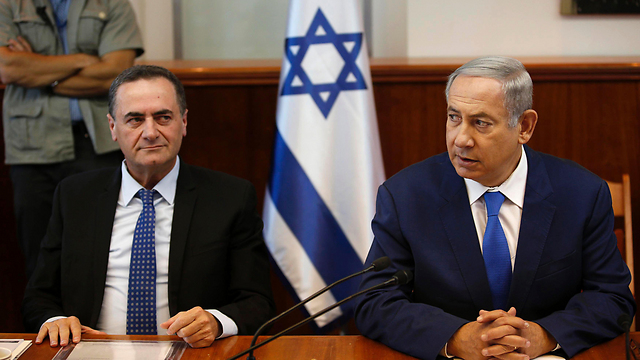Op-ed: The question we should all be asking is not how the current train work crisis will be solved, but what the next battleground between the different factions in Israeli society will be and when—if ever—will it end.
Op-ed: The question we should all be asking is not how the current train work crisis will be solved, but what the next battleground between the different factions in Israeli society will be and when—if ever—will it end.
Having no trains on Sunday is half a day’s worth of lost work time for 150,000 Israelis who rely on this service, and for another 100,000 who were stuck in traffic as a result. And yet, Israelis can handle such blows, as has already been proven by them handling the occasional strikes staged by train workers. This time, they weren’t outraged purely by the trains not running, but also by the person they knew to be responsible for it.

When Netanyahu met with heads of the Haredi press two weeks ago, he was asked about the train work on Shabbat. Embarrassed, Netanyahu grew silent, as it became clear to the other participants that he was completely in the dark regarding an issue that was riling up the ultra-Orthodox community.
The prime minister isn’t supposed to know about every tempest that takes place between the Jordan River and the sea. That’s why the state provides him with a huge staff, in the Prime Minister’s Office, the National Security Council and various other governmental departments at his disposal. All of them look up to him, but he doesn’t give them a second glance. Back in the early 90s, when Netanyahu was leader of the opposition, the Knesset set aside two large offices for him. He decided to claim the entry room for himself and to fill the larger room with secretaries. “I need plenty of secretaries,” he explained. “I don’t need assistants.”
Indeed, during his years in politics he has gone through dozens, if not hundreds of assistants. Most of them were selected by a one-man, or rather a one-woman locating committee. The more talented ones were not selected or quickly disposed of. The less talented were disposed of a bit later. Netanyahu’s current office is clearly more inferior to those of past PMOs. He’s a solo player, incapable of conducting an entire orchestra.
“This is an unnecessary crisis,” said Netanyahu in Sunday’s government meeting. He’s right; if the prime minister had wiser, more experienced and more reliable assistants, it wouldn’t have turned into a crisis.
The political echelon was busy yesterday with what will befall Katz—whether he would be fired, resign or mend his relationship with Netanyahu. Some of the other ministers had begun eyeing the billion shekels’-worth Transportation Ministry. Like the widow’s neighbors in Kazantzakis’ Zorba the Greek, they wanted to get their hands on Katz’s property while he was still alive, realizing that even if he survives this round, his end is near.
Netanyahu manages to cohabitate with his political rivals in two scenarios: Either they each belong to different parties, or his rival is dead. The eulogy that will be written about Katz will surely make many-a-heart quiver. The problem is that Katz just. Won’t. Die.
With all due respect, the Israeli public shouldn’t be so invested in Katz’s fate. What it should care about is the long-term damage, for this crisis is threatening to collapse our society’s base for a shared existence. The unwritten treaty between the ultra-Orthodox, religious Zionists and secular Jews is based on everyone looking the other way: You seculars run the country as you see fit, and we’ll pretend not to notice. If you seculars don’t desecrate Shabbat in our neighborhoods, we won’t interfere in the way you spend your Saturday. This is the real meaning of what the politicians are referring to as “the status quo.” In most cases, it wasn’t the ultra-Orthodox who enforced their way of life on the secular community, but the National Religious Party.
Whoever thinks that this story will end with the current train debate is dreaming. Any day now, Health Minister Yakov Litzman (United Torah Judaism) will have to explain why a hospital was permitted to keep working on Shabbat, why a terminally ill patient was taken off life support or why an abortion for a young girl had been approved. For in reality, Litzman is allowing the desecration of Shabbat just as much as Katz is.
Litzman and Katz are not alone in this, though: What, I wonder, will Communication Minister Netanyahu do when asked why the Israel Public Broadcasting Company operates on Shabbat; what will Culture and Sport Minister Miri Regev (Likud), who famously kept Shabbat in Rio during the Olympics, do when the ultra-Orthodox community remembers we hold soccer matches on Shabbat; why is it that having soccer matches is allowed, but working on the railroad isn’t, regardless of the cost or damages? Why is it permissible to staff theaters and cinemas on Shabbat, but not the Azrieli Train Station?
To put it differently, there is no way that what began with the train station will end with it. And the responsibility for this rests on the shoulders of one man, who is an exemplar of his generation.
As reported by Ynetnews
